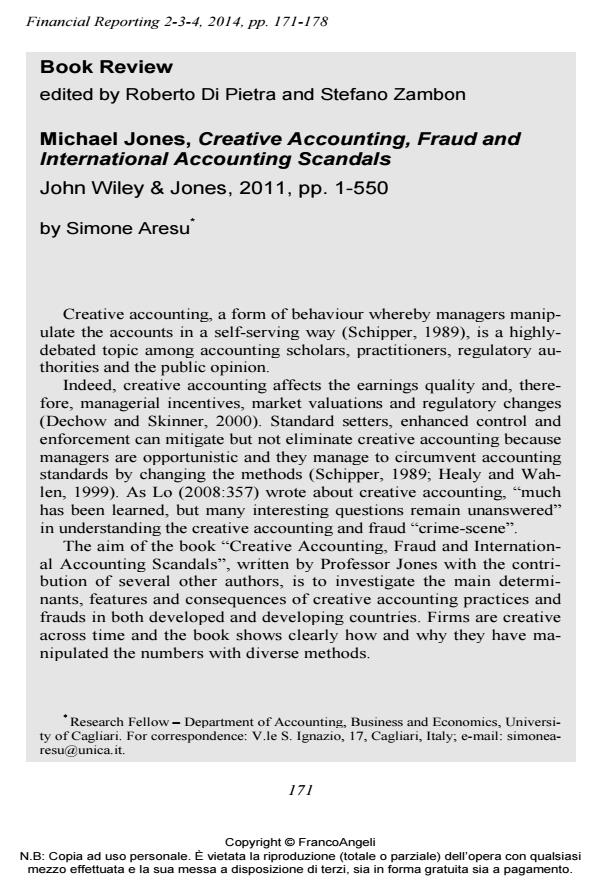Book review
Journal title FINANCIAL REPORTING
Author/s Simone Aresu
Publishing Year 2015 Issue 2014/2-3-4
Language English Pages 8 P. 171-178 File size 171 KB
DOI 10.3280/FR2014-002008
DOI is like a bar code for intellectual property: to have more infomation
click here
Below, you can see the article first page
If you want to buy this article in PDF format, you can do it, following the instructions to buy download credits

FrancoAngeli is member of Publishers International Linking Association, Inc (PILA), a not-for-profit association which run the CrossRef service enabling links to and from online scholarly content.
Simone Aresu, Book review in "FINANCIAL REPORTING" 2-3-4/2014, pp 171-178, DOI: 10.3280/FR2014-002008